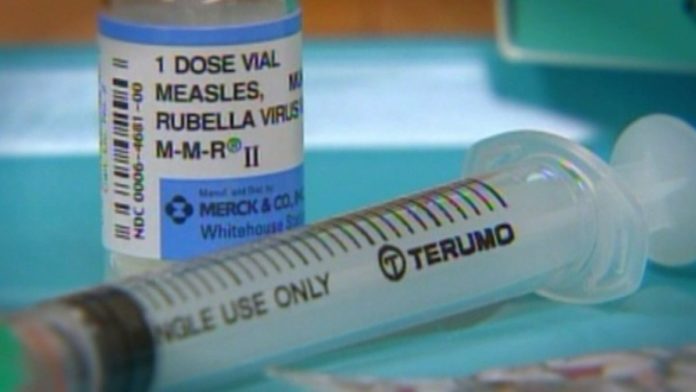
The number of measles cases in the U.S. has surpassed 150 and continues to climb, according to new numbers released Monday.
Between Jan. 1 and Feb. 20, a total of 154 cases in 17 different states were confirmed by the Centers for Diseases Control and Prevention (CDC). The majority of these cases are tied to an outbreak linked to Disney California Adventure Park in Anaheim, Calif., and most were in people who had not been immunized.
The multistate outbreak is believed to have started when a traveler who was infected with measles overseas visited Disneyland, though the specific source isn’t known, according to the CDC. An analysis of the virus causing this outbreak shows it is identical to a virus type that caused a large outbreak in the Philippines last year. But the virus type appears to be common: it has also been identified in 14 other countries and at least six U.S. states with cases that aren’t linked to the Disneyland outbreak.
Measles was officially declared eliminated in the United States in 2000 after decades of intensive childhood vaccine efforts. But last year the nation had its highest number of measles cases in two decades — a dangerous trend that health officials say is largely attributable to the growing numbers of unvaccinated children.
There are currently three simultaneous outbreaks of the virus, the largest connected to Disneyland and the other two in Illinois and Nevada. In 2014, the United States experienced a major outbreak of measles that totaled 383 cases and was primarily spreading among an unvaccinated Amish community in Ohio.
The ongoing outbreaks have renewed a debate over the so-called anti-vaccination movement in which fears about potential side effects of vaccines, fueled by now-debunked research suggesting a link to autism, have led a minority of parents to refuse to allow their children to be inoculated.
Two doses of the measles vaccine (MMR) are nearly 100% effective at preventing the highly contagious disease, which infects 90% of those exposed to it unless they are immunized. The CDC recommends all children get their first dose of the vaccine at age 12 through 15 months and the second dose between ages 4 to 6.
While most people recover from measles, it has the potential to be a very serious disease. About a quarter of infected patients in the current outbreak have been sick enough to require hospitalization, and the CDC estimates that 1 in 10 children with measles will develop ear infections that can result in permanent hearing loss, while 1 in 20 will develop pneumonia — the most common cause of death from measles in children. Other serious complications include acute encephalitis, which often results in permanent brain damage, and respiratory and neurological damage, which can result in long-term disability or death. Over the weekend, measles killed an unvaccinated toddler in Berlin.
